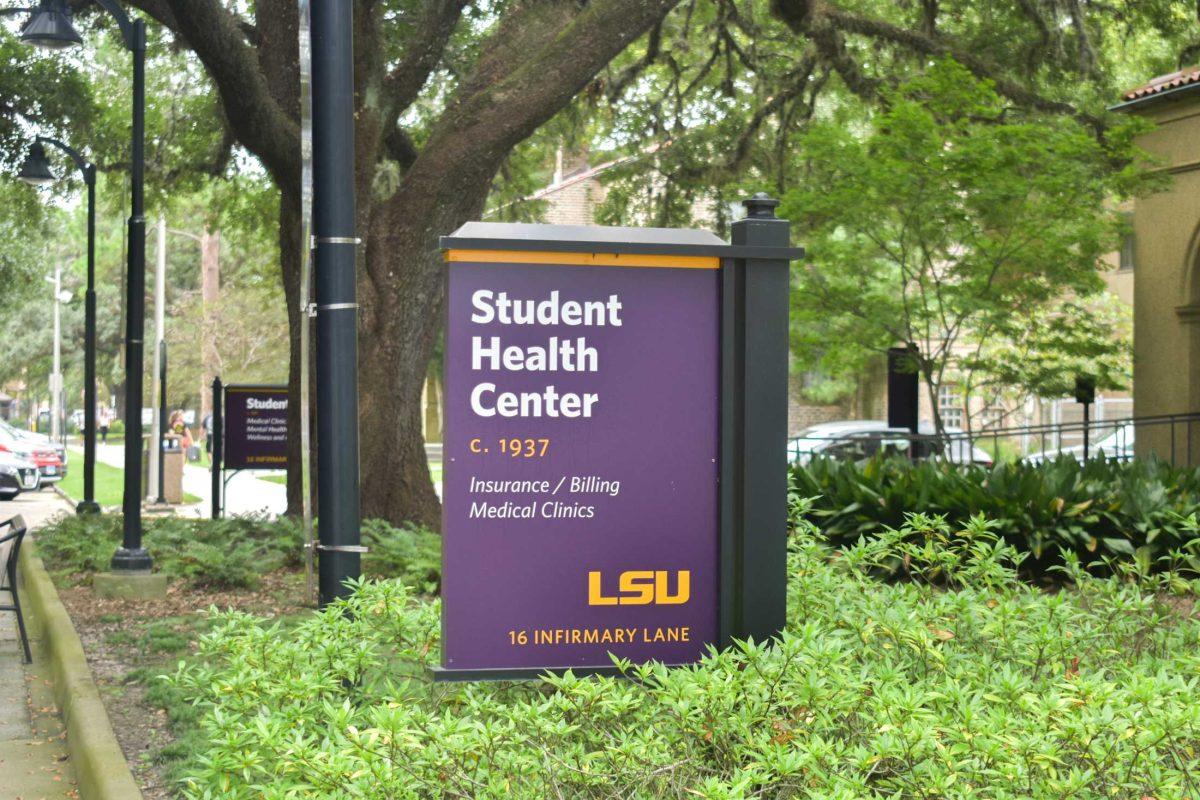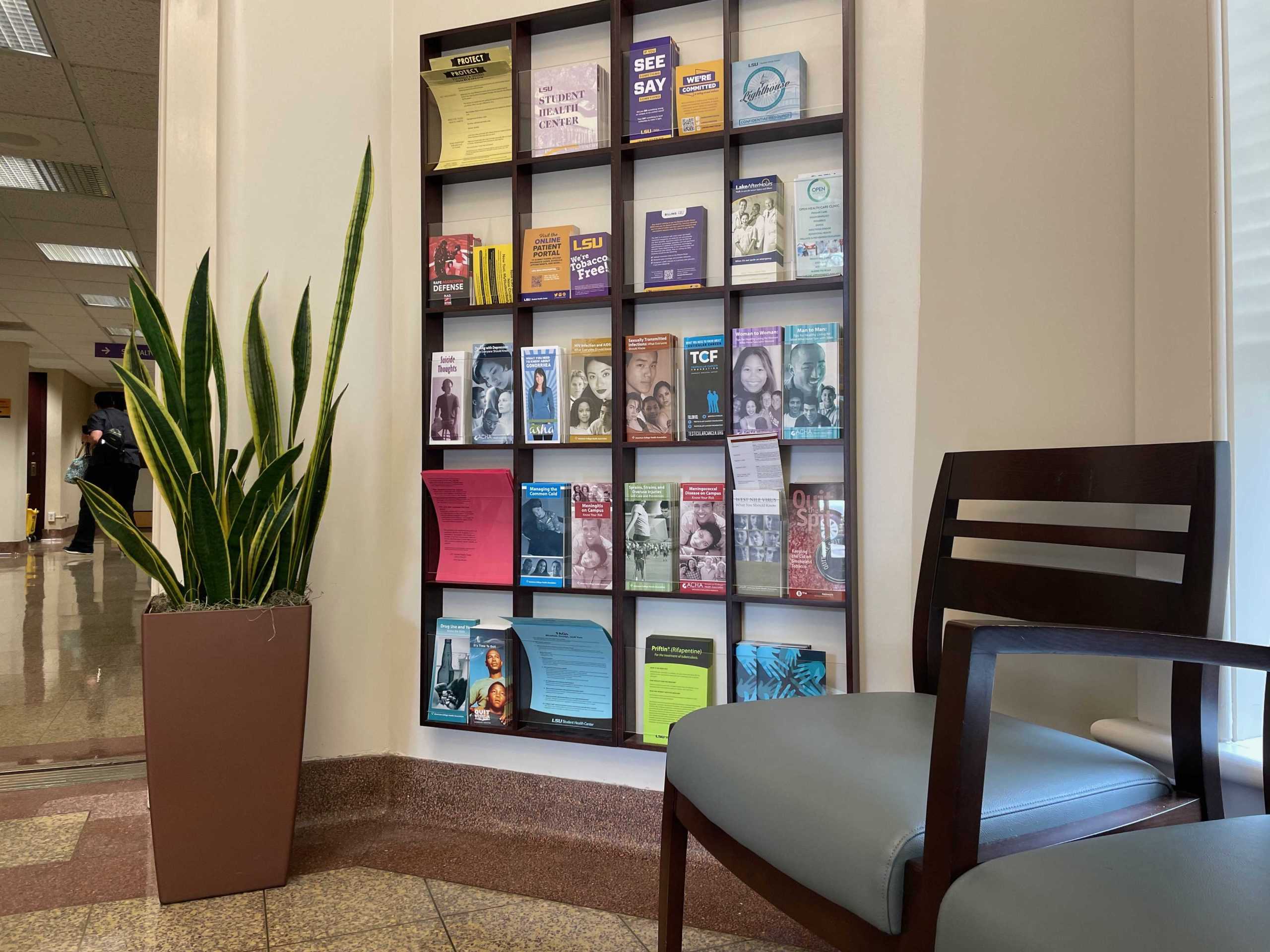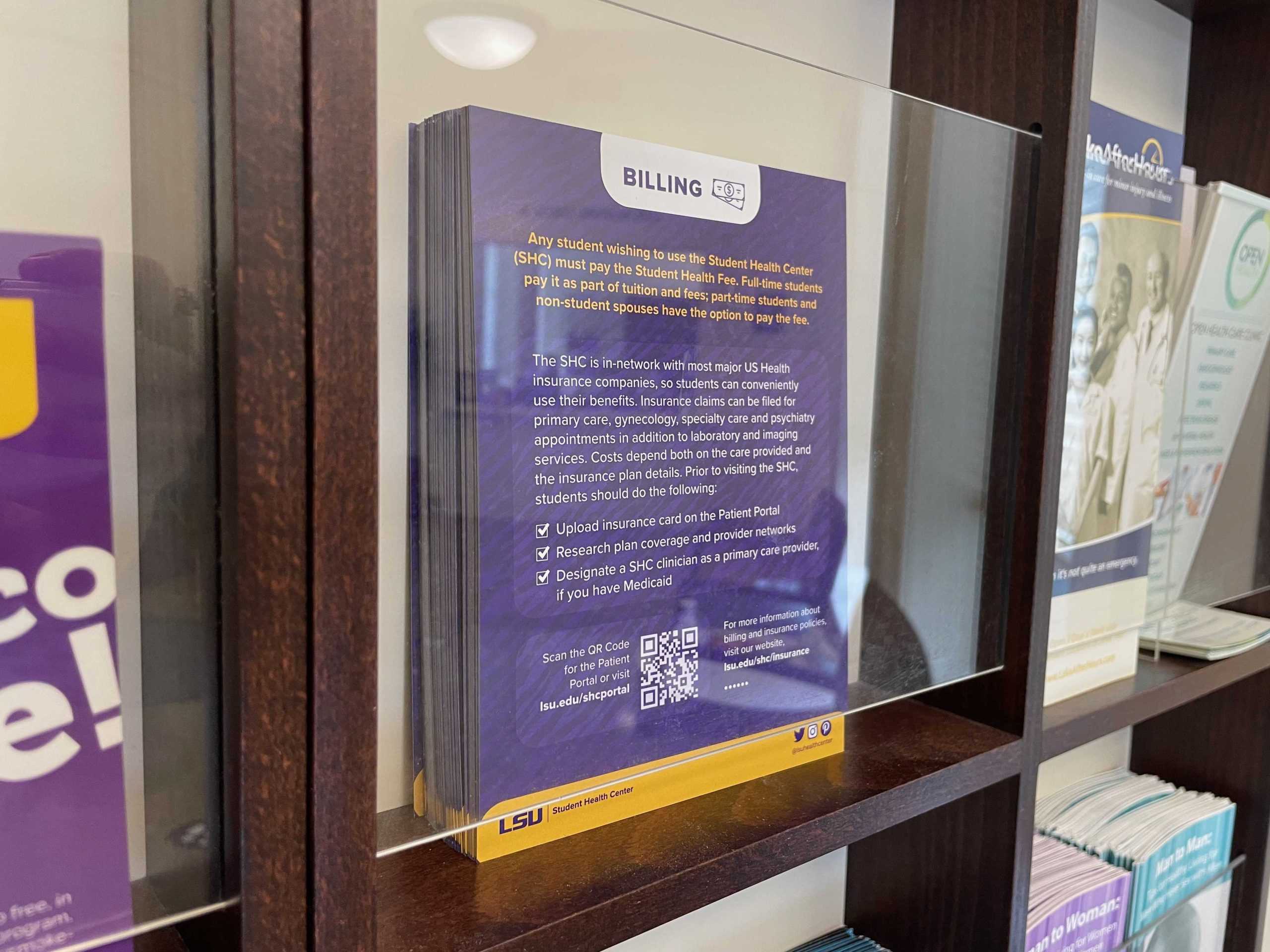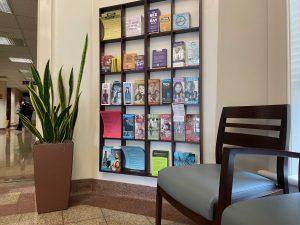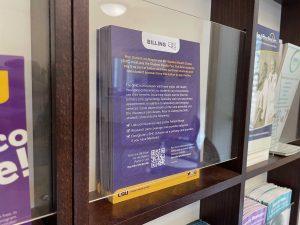Note: A previous version of this story said a student was charged a series of late fees for medical bills. However, these fees were for other services the student received and were mistaken for late fees, ACS Medical Business Solutions explained. The story has since been corrected.
Note: The Reveille is dedicating an investigative series to the operations of the Student Health Center. This is the first part of an ongoing series.
Soheil Kafili didn’t expect to receive a $400 bill in July from the Student Health Center, nor did he expect over a dozen of his international student colleagues to share his experience.
Kafili, an international graduate student studying media and public affairs, immediately contacted ACS Medical Business Solutions, the Student Health Center’s financial partner that handles billing. After requesting a breakdown of his charges, Kafili discovered that two of the five charges were supposed to be covered by his insurance, with another waiting for potential insurance coverage, but it appeared as a charge.
“When I contacted [ACS], I [was] like ‘what’s going on?’” Kafili said. “We found that three out of five [charges] I wasn’t even responsible for. So, what’s the guarantee of that system not having any problems with other students?”
Multiple students, especially international and graduate students like Kafili, have fallen victim to similar fees and other costs associated with the Student Health Center’s care, even if it is said to be insured.
Roughly 15 of his friends, all international students, have dealt with problems from Student Health Center fees, but some of these students have busy schedules; they were unable to call the Student Health Center to question unexpected bills, according to Kafili.
The International Services Annual Report of Fall 2021 displays there are about 1,500 international students on campus, 976 of which are graduate students.
Another charge Kafili was presented with was for a COVID-19 test. After a nurse administered the test, Kafili was not prescribed medicine or treatment. He was instructed to continue his use of over-the-counter medicine. This cost him $161.
He was similarly charged for a vaccine that cost him the same amount of money as if he bought one at a non-LSU pharmacy like CVS or Walgreens.
“As students, we should assume our health center should provide cheaper services,” Kafili said. “But it’s [the] same as outside.”
During the healthcare process, Kafili noticed a lack of communication from the Student Health Center and an increase of primary care prices. He believes that students are paying the price for the Student Health Center’s decision to change their financial policy.
“None of the international or graduate students I know who have received these fees have done such a thing,” Kafili said. “They either paid it or waited. So they’re there, [ACS], because we trust the system, but the system is flawed.”
Shima Partovian, an Iranian graduate student studying English, experienced a similar experience with the Student Health Center’s billing department. She received three separate unknown fees from the Student Health Center.
Partovian was charged $124 from the Student Health Center on April 12.
When she called the Student Health Center to address the issue, she was referred to ACS. She called ACS about five times before someone answered, and when they finally did, ACS instructed her to not pay anything and would be sent a new bill. This would take 40 days.
“They didn’t give me any details about why this happened,” Partovian said. “I wanted actually to see for what I was charged, but there was no information.”
While Partovian waited for the updated bill, she received another bill for $336. Partovian asked what this unpaid bill was.
According to her, ACS did not answer her question, repeating that she had to pay the bill.
“I didn’t understand anything. I just said, ‘okay, if I have to pay something, let’s just do it,’” Partovian said.
Part of the bill was sent to a collection agency. On Aug. 5, Partovian ended up paying $212 and still didn’t know why.
“I don’t have a choice,” Partovian said. “I have to go back [to the Student Health Center] because according to them, it’s the cheapest for us. I don’t know. I’ll go there, definitely. But I just wish that they would be actually clear about all these charges or give us some info about what they are actually for.”
LSU is currently reevaluating the student health insurance plan, according to the Executive Director of the Student Health Center, Julie Hupperich. While the Student Health Center isn’t the primary party in the decision-making process, they are still part of the conversation, she added.
“We give [LSU administration] feedback based on what we see in our building, what students need, so that is definitely something we are working on,” Hupperich said. “We really do believe we can get a more robust plan at a lower premium to make it more affordable for students.”
The Student Health Center partnered with LSU Healthcare Network in May 2021 and became “in-network” with most major US-based insurance plans.
Hupperich said this decision was made for two reasons: to let students with good insurance be able to use their benefits at the Student Health Center instead of seeking medical service outside of campus and to generate more revenue for services from students who utilize the Student Health Center rather than increasing the Student Health Center fee on the fee bill for all students.
“All students would continue to pay a student health fee, but then the students who utilized us more, we would use the fees generated from those visits to help offset the need for a future fee increase,” Hupperich said.
Specifically for international students, the Student Health Center has worked on creating an informational booklet about billing and insurance. The clinic also worked with some international students to create an informational video explaining billing and insurance in the United States and how it may look different than in other countries, Hupperich said.
“Some of the countries [international students] come from, the government pays for all of your healthcare,” Hupperich said. ”And of course, that’s not typically the case here.”
Hupperich also advised students struggling to afford medical care to speak with the Student Health Center’s case manager to connect students with community resources. Another solution she offered was to evaluate other insurance options.
Issues with the Student Health Center’s billing process don’t just affect international graduate students. Architecture senior Harris Quadir was saving up for a study abroad trip in France. But he feared his plans would fall through when he received an unexpected $1,000 bill from the Student Health Center.
“I was just shocked,” Quadir said. “I just didn’t believe it, and I thought there was a mistake.”
Before receiving the bill, Quadir noticed his insurance covered his co-pay for every previous visit he made to the Student Health Center.
“I was going [with] the assumption that everything was being taken care of by my insurance,” Quadir said. “I was just not really well aware that I was still being billed.”
Quadir was never verbally informed that bills were accumulating throughout his 14 visits to the Student Health Center over the 2021 school year. He learned the Student Health Center had been mailing paper bills to his old house that burnt down in December 2021.
“Obviously we were not getting mail from that address anymore,” Quadir said. “So, something as sensitive as bills should not have been ineffectively communicated to the patient, because I’m sure if I had known about it since the first $100 bill, I would have been a little bit more alert.”
Quadir wishes someone at the front desk, a nurse or doctor would have alerted him that he had a high, accumulating balance.
“International students have it a lot worse,” Quadir said. “You don’t really have a choice because it’s your home, so it’s frustrating, and then [there is a] lack of communication, so you’re not really informed of what’s going on until it’s too late.”
Hupperich believes it is reasonable for students to expect a verbal estimated cost of a primary care service based on their insurance plan and prior to walking in the clinic.
“As the Student Health Center, we should be able to provide [students] with an estimate of what things would cost, and I think as a consumer of healthcare, they should ask those questions,” Hupperich said.



